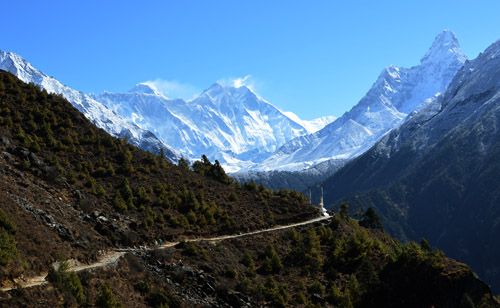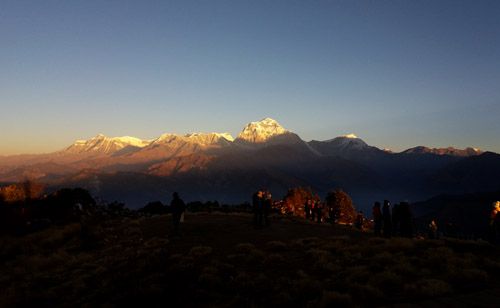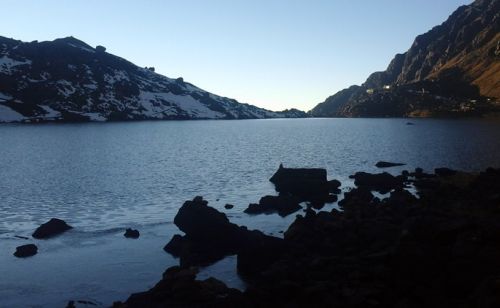FAQs
A travel/ trek guide book is best for more information. Maps are available in bookstores around Pokhara and Kathmandu.
Yes, we are a government authorized trekking agency and are associated with the NMA, TAAN and are a member of the NTB.
After choosing the trip you wish to join, the first step is to fill up the form available. A deposit has to be made in order to confirm the reservation. All details will be emailed to you to make it easy for you to book.
Actually, we do not provide any of your personal equipments and climbing gear during your holiday here, but if you wish we can help hiring in Kathmandu.
Yes, you can travel alone but we recommend that you take at least one guide with you. This is because you may need assistance in case you are sick or stuck in a difficult situation.
During camping treks we provide boiled drinking water. As for tea house treks, you can buy mineral water at each tea house.
Yes, you need trekking permits while trekking in Nepal. We help you in getting legal permits to almost any trekking region.
Although we prefer receiving cash payment after your arrival, we do accept credit cards as well.
Yes, you can hire all the required trekking equipments in Kathmandu and we help you in doing so.
First, we suggest that you drink 4 liters of water every day. In case you get sick we provide you with hot drinks and general medication. If this doesn't work, you will be taken to a lower altitude to help you feel better.
Yes, we do. If you would like to travel independently, or with your friends, families & colleagues you are invited to choose any of the trips at your convenient time frame for any number of people (minimum 1 & maximum 100 at a time). Cost for private trip is fixed on the basis of group size, trek area, duration and trek style, and is negotiable. If none of our fixed group departure dates work for you and you do not have anyone to accompany you, you can still be able to make your preferred trip with us. There is absolutely nothing to worry about making it solo trip. We assign local guide, porters etc who you can trust your life with.
Security of our clients is the foremost important for us. All our guides and other support crew are carefully chosen for your trips. Our guides hold licenses issued by the Nepal Government. They are very honest and reliable. But we would also advise you to take care of your own personal belongings. If you are on ‘camping trek’ please do not leave your bags unattended at any time for your own safety. Take your main bag inside the tent once you reach camp site. At night, put all bags and belongings in the middle of the tent. Your guide assigns a Sherpa on turn wise basis to guard the camp site throughout the night. If you are on ‘Tea house or Camping trek’ arrangement, you will be sleeping in local tea house. You have to take sensible precautions yourself at all times. Never leave your baggage unattended and keep your lodge room locked when you go out.
You should be moderately fit, used to some regular exercise and enjoy walking in the high altitude conditions
Tips are appreciated by your support team after the trip. The amount depends on your budget and appreciation of their work. Some trekkers give 10% of the total tour cost as tips.
The clothing you bring will need to allow for both the warmth of the days and the chill of the nights. While trekking during the day at lower altitudes, lightweight trekking trousers and T-shirts are recommended. It's always a good idea to carry a waterproof jacket and some warmer clothing with you though as mountain weather is notoriously unpredictable. For the cold nights, thermal underwear, a warm fleece jacket and even a down jacket will help to keep you warm. Good shoes are of great importance. They must be sturdy and comfortable. For higher altitude treks where you may have to tread snow for long hours, good boots are available for rent in Kathmandu. In view of local customs, try not to wear too skimpy or revealing clothes. Your reception by locals can vary greatly on the way you dress.
We accommodate trekking groups in local lodges available on the trail. As it is not possible to book the rooms days in advance, we send a porter few hours ahead of the group each day to book the rooms.
Depending on the prevailing situation, you can modify it to some extent after consulting with your guide. However, the date of trek completion should always coincide with the original itinerary. You should keep in mind that this is an adventure trip into the remotest region, where many unforeseen events may contribute to the need for a change in itinerary. In such cases, we or your guide will suggest the best alternative similar to your original itinerary.
Yes, it is certain that if you rapidly gain height you will feel a sort of sickness in high altitude commonly known as Acute Mountain Sickness. But with good planning and common sense it is easily avoided. AMS occurs as the result of a failure to adapt to higher altitudes. Fluids accumulate in between the cells in the body and eventually collect where, unfortunately it can do the most harm in the lungs and brain. As the fluid collects in the lungs, you become breathless more easily while walking and eventually more breathless at rest. A cough begins, initially dry and irritative, but progressing, in its most severe form, to the production of pink, frothy sputum. The person ultimately drowns in this fluid if he/she doesn't descend. This syndrome is referred to as High Altitude Pulmonary Edema (HAPE).
When fluid collects in the brain, you develop a headache, loss of appetite, nausea and sometimes vomiting. You become increasingly tired and want to lay down and do nothing. As you progress, you develop a problem with your balance and coordination (ataxia). Eventually you lie down and slip into coma. Death is inevitable if you do it descend. This syndrome is called High Altitude Cerebral Edema (HACE). HAPE and HACE can occur singly or in combination.
While there are no seasonal constraints on travelling to Nepal, different regions are best visited in different seasons. Enquire about any trekking region and we will tell you about the best season to visit that area.
(Usually March/April/May and September/October/November are the most suitable months for trekking).
Tea House Trek:
Along the popular trekking routes as such Everest, Annapurna and Langtang region, there are lots of trail-side lodges and inns where we can take food and stay overnight in lodges and inns. We are not equipped with camping gear. We take along with us the apparel that we need during the trek - cameras, medical kits, and other things of a personal nature. A guide and a porter or two accompany you. In Nepal it is hard to find yourself in complete wilderness until you are above 4,000m (12,000ft). Still, you will sometimes encounter taut nomad people during summer when they herd highland-cattle for grazing.
Camping Trek:
You're fully catered for camping. All the camping gear including foodstuff, tents, sleeping bags, medical kits and other relevant stuff will be carried along the trek by our porters and packed animals. We pitch the camp on marshland or where is the most suitable and eat the food that our trained cooks prepare. You will be accompanied by a guide, Sherpas, cooks, porters and sometime packed animals
Company Info
Client Reviews

Notre trek, autour des Annapurna, avec Dhan Bahadur et son équipe de porteurs a été très réussi. Nous avons passé un excellent séjour dans des paysages fabuleux, et en très bonne compagnie! Et des soirées inoubliables avec toute l'équipe! Cela fait deux fois que…... continue
Martine Guérin, France
Get Expert Support
OUR SPECIAL OFFER
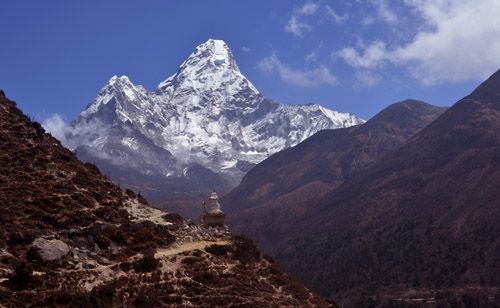
Everest Panorama Trek- 11 Days
11 Days
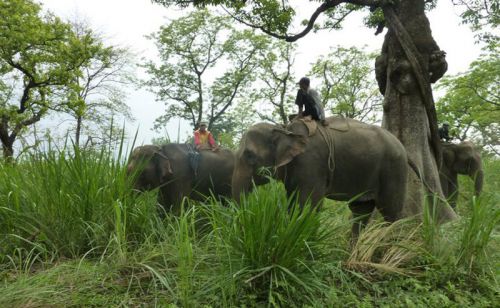
Chitwan Jungle Safari
3 Days
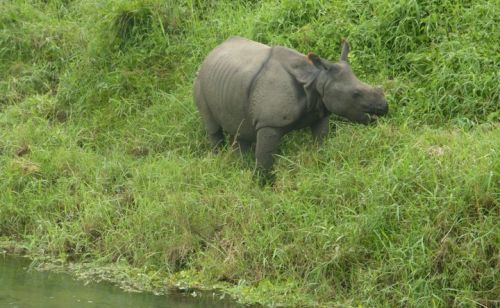
Bardia Jungle Safari
3 Days
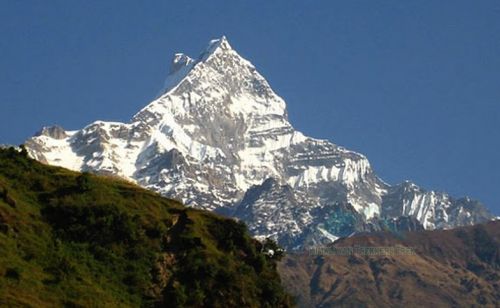
Mardi Himal Trek- 10 Days
10 Days
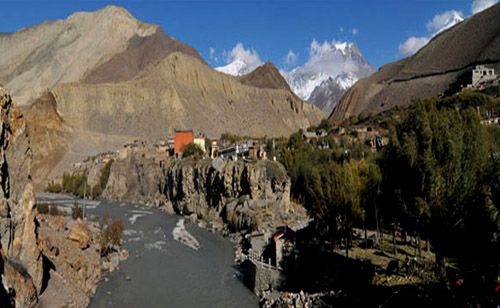
Lower Dolpo Trek
24 Days

